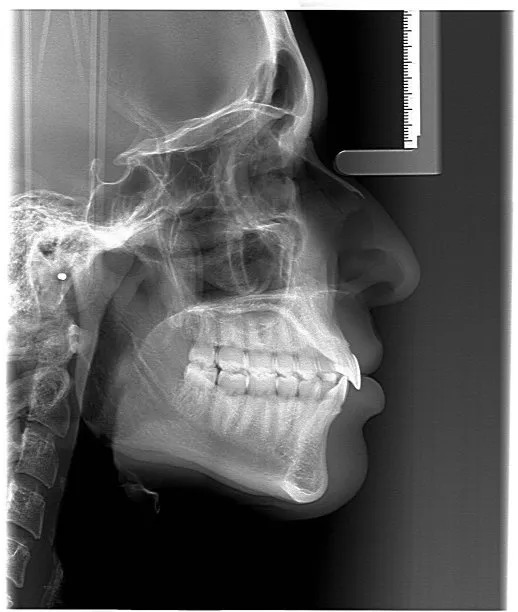Summary: Before embarking on a root canal treatment, it is crucial to take essential precautions to ensure optimal dental health and a smooth recovery. This article delves into four main areas: understanding the procedure, choosing the right dentist, preparing for the treatment, and post-treatment care. Each section provides valuable insights and actionable steps to ensure you are well-prepared for the journey ahead. By following these guidelines, patients can alleviate anxiety, enhance recovery, and improve overall dental health after the procedure.
1. Understanding the Root Canal Procedure

Before undergoing a root canal treatment, it is vital to fully understand what the procedure entails. A root canal is performed to treat infection or damage within the tooths pulp, effectively saving the tooth from extraction. Knowing the specifics of the procedure can help alleviate any fears or anxiety associated with it, leading to a more relaxed experience.
Patients should familiarize themselves with the steps involved in a root canal. Typically, the dentist will start by administering anesthesia to ensure comfort throughout the procedure. Next, they will create an opening in the crown of the tooth to access the pulp chamber, remove any infected tissue, and then clean and disinfect the area. Understanding these steps can demystify the process and make patients feel more in control.
Furthermore, being aware of the post-procedure expectations is beneficial. It is normal to experience some discomfort or sensitivity after the treatment, but understanding that this will subside can provide reassurance. Ultimately, knowledge is power when it comes to reducing anxiety about the root canal procedure.
2. Choosing the Right Dentist
Finding the right dentist or endodontist is one of the most critical steps before undergoing a root canal treatment. Not all dental practitioners have the same level of expertise, so it is important to do your research. Check online reviews and seek recommendations from friends or family to find a qualified professional.
Once potential candidates are identified, schedule consultations to discuss their approach to root canals. During these meetings, patients can ask about the dentists experience, success rates, and sedation options. An experienced dentist will not only have technical skills but also have a comforting chairside manner that will ease anxiety.
Additionally, inquire about the technology and techniques used in the dental practice. Advanced equipment, such as digital X-rays and rotary endodontics, can significantly enhance the precision and comfort of the procedure. Ultimately, choosing a skilled and reputable dentist is vital for a successful root canal treatment.
3. Preparing for the Treatment
Preparation for a root canal treatment can significantly influence the outcome and recovery process. One of the best ways to prepare is to follow any pre-treatment instructions provided by the dentist. These may include dietary restrictions or guidelines regarding medications.
Moreover, it is advisable to discuss any concerns or questions before the appointment. This can help clarify any uncertainties and improve the patient’s mental preparedness. A well-informed patient is likely to experience less anxiety, leading to a smoother procedure.
Patients should also consider arranging transportation to and from the dental office. Although many root canal treatments can be handled with local anesthesia, there may be instances where sedation is used. Having someone responsible to accompany you can relieve stress and ensure safety. Proper preparation ultimately sets the stage for a successful treatment day.
4. Post-Treatment Care and Recovery
After a root canal treatment, adhering to post-care instructions is crucial for optimal recovery. Patients should monitor their symptoms and be aware of any unusual changes, such as severe pain or swelling that persists beyond a few days, which might indicate a complication.
Additionally, it is essential to maintain good oral hygiene post-treatment. Brushing gently and continuing to floss can help prevent further infection and promote healing. Avoiding hard or chewy foods for a short period can also help protect the treated tooth.
Lastly, regular follow-up appointments with the dentist are necessary to monitor the tooth healing process and to determine if any further treatments, such as placing a crown, are required. A proactive approach to post-treatment care significantly enhances the chances of a successful long-term outcome.
Summary:
In conclusion, understanding the root canal procedure and taking the necessary precautions can greatly improve the overall experience and recovery. This involves choosing the right dentist, adequately preparing for the treatment, and adhering to post-treatment care instructions. Each step is vital to ensure optimal dental health and a successful outcome.
This article is compiled by Vickong Dental and the content is for reference only.
Vickong Dental
Vickong Dental is a large medical group established in Hong Kong in 2008 by professors from well-known medical universities in Guangdong and Hong Kong, as well as medical doctors from key national '985' universities (including Master's supervisors and senior professors). The chain of branches brings together expert dentists with PhDs and Master's degrees from Hong Kong and Mainland China, committed to providing high-quality dental treatment.
"Vickong Dental Practices the University Motto of 'Healing and Serving Society,' with a Stable Operation for Sixteen Years. It Has Been honored with Hong Kong Enterprise Leaders's Choice,' and is a Global Trusted Implant Center for the Nobel Implant System. Recommended by Hong Kong Metro Broadcast and Guangdong Television, it Serves Customers from Over Thirty Countries and Regions, Gaining the Trust and Favor of Citizens from the Guangdong-Hong Kong-Macau Greater Bay Area and Surrounding Cities.

Thousands of customers' unanimous praise
The most recognized and highly recommended dental service by customers in the Guangdong-Hong Kong-Macau Greater Bay Area
We Ensure You Receive Detailed Care and Attention Here
Hong Kong standards, Shenzhen prices, Your Trusted English-speaking dentists

Vickong Dental Medical-Grade Instrument Disinfection Process
Vickong Dental Medical-Grade Instrument Disinfection Process

Vickong Dental Chain: A Warm and Comfortable Environment for Treatment






Appointment Hours

Q&A
Why choose Vickong Dental?
Vickong Dental practices the university motto 「Medicine to Benefit Society」, with each branch bringing together highly qualified dentists with doctoral and master’s degrees from Hong Kong and the Mainland, and has maintained seventeen years of steady operation。Recipient of 「2024 Hong Kong Enterprise Leaders Brand」, 「2025 Hong Kong Enterprise Leaders Brand」, a Nobel Biocare Global Trusted Implant Center, and a brand recommended by Metro Radio Hong Kong and Guangdong TV。
To date, we have served customers from more than thirty countries and regions,earning exceptionally high word-of-mouth recognition and trusted recommendations from residents across the Guangdong-Hong Kong-Macao Greater Bay Area and surrounding cities
We have eight major branches in Zhuhai、Shenzhen,and a consultation and service assurance center in Hong Kong,so you can book a free consultation at any time for any questions,which is very reassuring.
If I do not accept the quotation after the CT scan, will I be charged??
No! As long as the actual treatment has not started, you will not be charged any fees.
Will there be any additional charges during the treatment process?
No, there won’t be any additional charges. Before treatment begins, we will clearly explain the treatment plan and its corresponding fees. Only after the patient agrees and signs the consent form will we proceed with the dental service.
Can I pay in Hong Kong dollars?
Yes. Vickong Dental accepts payment in Hong Kong dollars. The amount will be converted based on the exchange rate of the day, and the applicable rate will be clearly communicated to you in advance.
Can I reschedule my appointment at any time?
Yes. Please contact us via **WeChat** or **WhatsApp** as early as possible, providing your original appointment time and details, along with your preferred new date and time slot for rescheduling.













